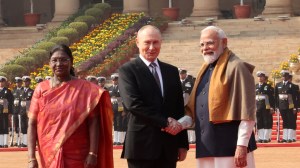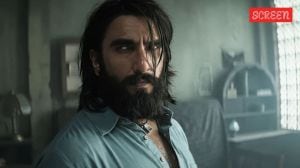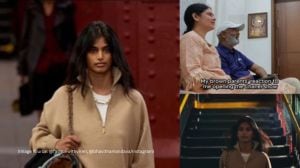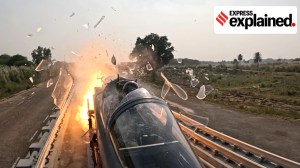In Whose Name Do We Suffer?
Arun Shourie interrogates the idea,as he moves from a wrenching personal story to a rigorous questioning of religious texts
One of the most existentially defiant moments in literature is when Ivan,in The Brothers Karamazov,in an impassioned speech raises the question of the suffering of children. Nothing can justify that suffering,nothing can console it,nothing can compensate for it,nothing can restore a sense of order and purpose in the world in the face of a childs suffering. There is no revenge,no justice and no redemption. What good can any theology do for children who are suffering? To pretend that there can be harmony or ethical order in the face of this suffering is to pile up falsehood,ignominy and perhaps worse. It is to deny the reality of suffering,render it invisible. Ivan then says,I would rather remain with my unavenged suffering,and unsatisfied indignation,even if I were wrong. Besides,too high a price is asked for harmony; it is beyond our means to pay so much to enter it. And so I hasten to give back my entrance ticket,and if I am an honest man I am bound to give it back as soon as possible. And that I am doing. Its not God that I dont accept,Alyosha,only I most respectfully return His ticket.
Arun Shouries personally wrenching,erudite and existentially blunt book is about as pointed a recreation of Ivans charge against religion as you can get. If there is a God,he can be described as nothing but a Sadist. How else can you describe someone who lets children go through extraordinary suffering? The difficult opening pages of the book,which describe in detail the plight of Shouries son,Aditya,who has cerebral palsy,say so clearly. The book then becomes,in part,a moving portrait of a family coping with this daily tragedy. But a large part of it is devoted to Shourie returning His ticket. Shourie is relentlessly and persuasively indignant,as Ivan was,that all religious truth comes at the price of denying the reality of suffering,in particular of children. He subjects religious texts of all traditions to the same relentless forensic skills he brings to the examination of government reports and court judgments. The depth and breadth of his engagement with a range of materials,from the Old Testament to the Gita,from psychology to a range of gurus,is astonishing. His method of interpretation is direct,no hiding behind allegories,metaphors,evasions. All the cant,all the denials,all the attempts to blame the victim,all the false promises of future recompense that religions offer are exposed,and found morally abhorrent. The result is a very powerful case for the prosecution. There is no explaining away a mothers tears.
But despite this charge,this is in some ways a profoundly religious book. Eliot once said of Tennysons poetry that what made it religious was not the quality of its faith but the quality of its doubt. The book is not simply an intellectual claim: suffering refutes religion. It is not simply an exposé of the cant of priests and gurus about suffering. It expresses a deeper existential indignation that presupposes that there is someone to be indignant at. It is an indignation that often makes sense only against the backdrop of some claim that this is not all meaningless,of some claim that there is value that is not ephemeral. It is the depth of the doubt that grabs you.
Shouries book will generate so many conversations that will help overcome a culture of avoidance. We are supposedly a religious society; but we actually never debate religion: the quality of our faith makes us irreligious. There is a silence about so many forms of suffering; and perhaps this will open a conversation about how we cope with extraordinary and relentless suffering of children. Most of us cannot even imagine what it is like to be confronted with such situations.
But what makes the book moving is Shouries personal account. Despite a sense of unavenged cosmic indignation,the book is suffused with extraordinary tenderness and love. Reading about Shouries family coming together to participate in Adityas life; Adityas own struggle and receptivity; and the reservoirs of courage that are summoned in the face of great physical and emotional pain is a bracing experience. Love creates value. But there is still no resting place in the redemptive power of love. Adityas mother is afflicted with Parkinsons.
Shourie is an extraordinary public figure. Reading this book,it is hard not to make comparisons with accounts of the inner life of another public figure: Charles de Gaulle. De Gaulles indomitable resolve is often attributed to his daughter Anne,who suffered from Downs syndrome. She was the emotional centre of his life; he seemed to open up to her in ways he did to no one else. But just as Shourie draws strength and a deep joy from Aditya,de Gaulle described Anne as the joy who helped me overcome the failures in all men and to look beyond them. The character of the Shourie family comes through and through. But there is also the pathos of these two powerful men,for whom it is tragically humbling to come to terms with the idea that they cannot help the most important thing in their lives.
De Gaulle made the most tragically beautiful remark at Annes death,Now she is like all the others. Shouries account,perhaps with less poetry and more bluntness,touches on similarly deep questions; it puts who we are into question. He is open to the idea that people cope with this abyss in many different ways,and draw solace from many sources. There are tantalising accounts of encounters with a range of gurus from Sai Baba to Krishnamurthy. But what he will not stand is anything that will subsume the suffering of a child in a larger narrative. Shourie persuasively articulates the view that in the face of suffering you can either be with the victim or the torturer. If you provide consolation for suffering you side with the torturer and deny the reality the victim faces. Perhaps more than he recognises,God may be on Shouries side. After all,the only way in which God cannot appear as torturer is to suffer himself. This is why Christ suffers. This is why Krishna cannot answer Draupadis loss of her sons,and dies forlorn under a tree. There is no answering a mothers cry. But this book still has the extraordinary courage to make most of life.
- 01
- 02
- 03
- 04
- 05































